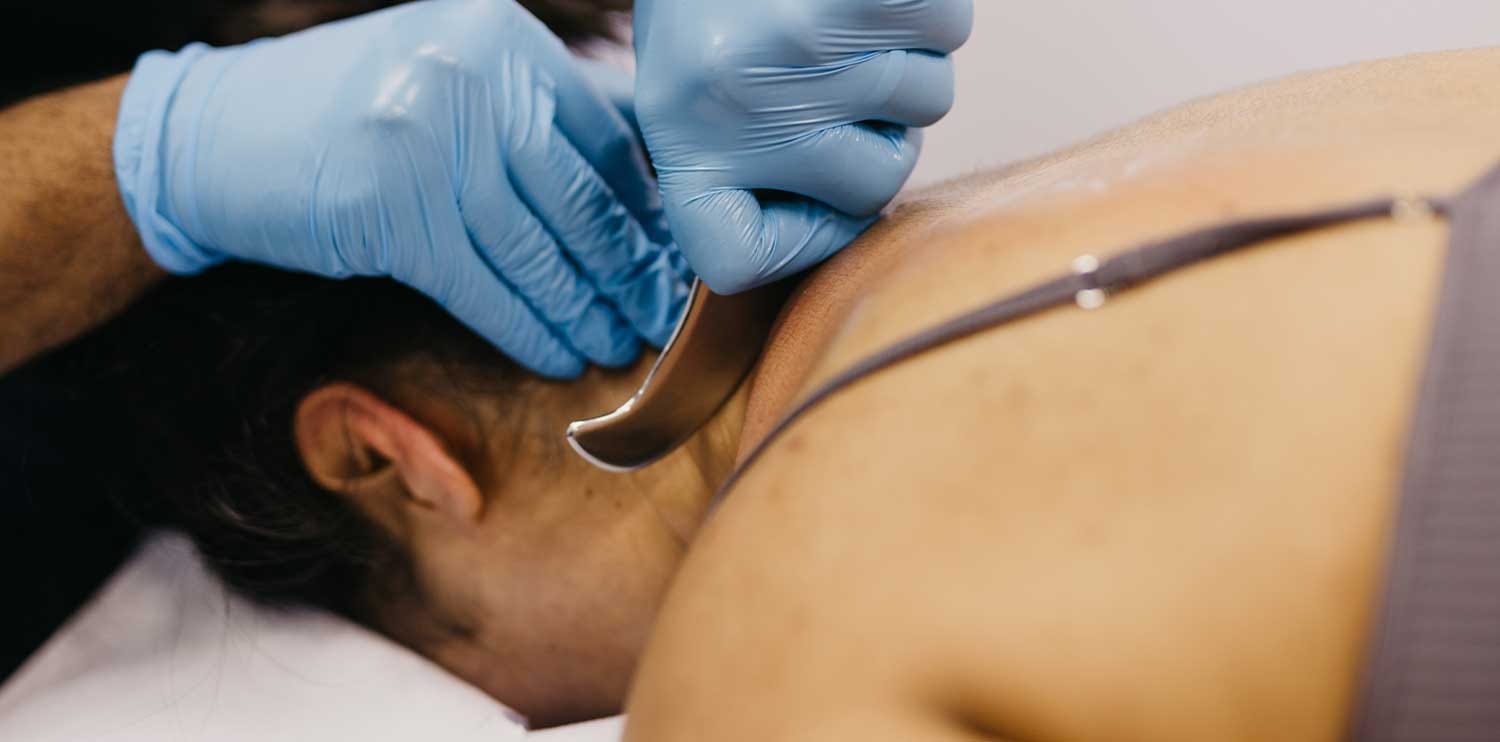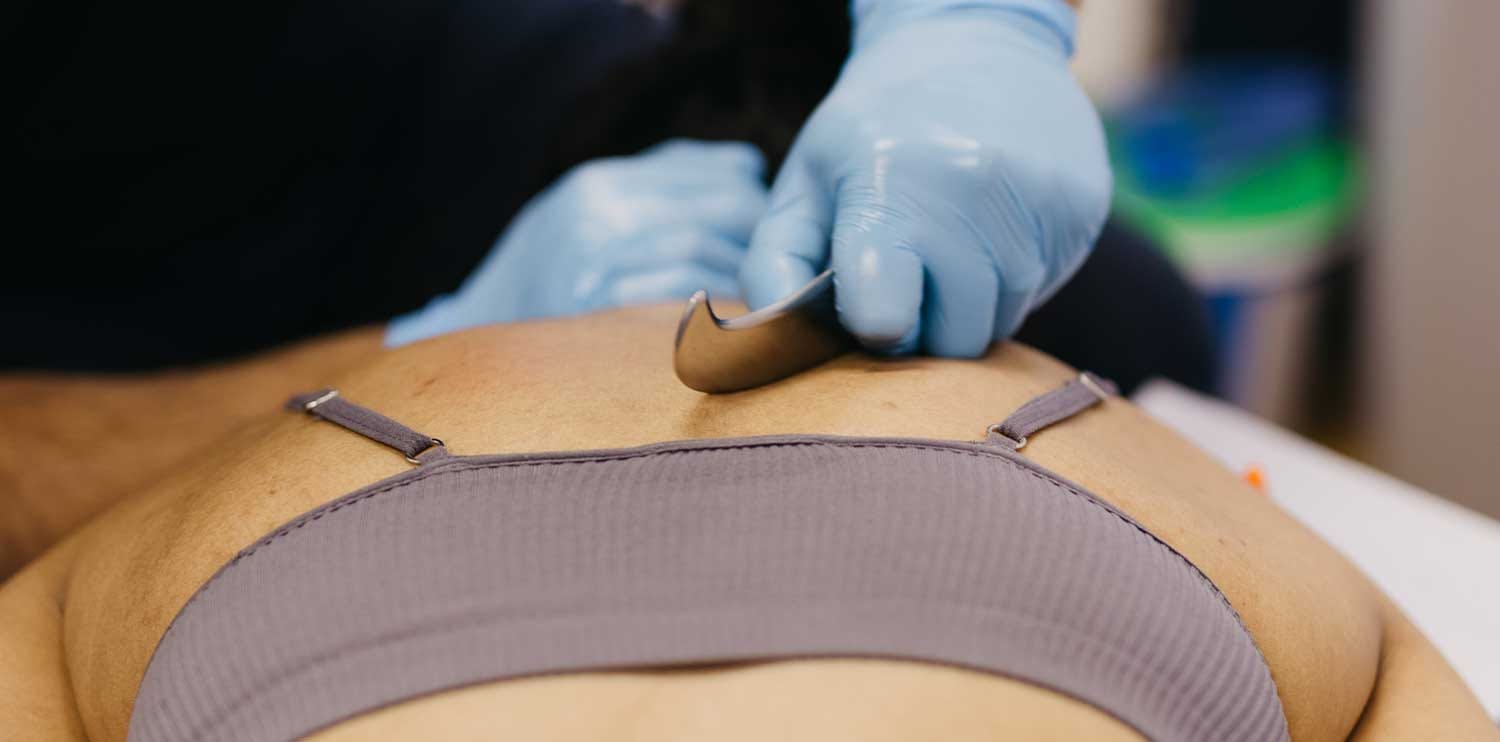Discover how Graston Therapy in London accelerates soft-tissue healing through instrument-assisted techniques delivered by qualified osteopaths, physiotherapists & chiropractors.

Graston Therapy has emerged as a leading instrument-assisted soft tissue mobilisation technique, helping a wide range of patients recover from musculoskeletal injuries more quickly. Moreover, as osteopaths, physiotherapists and chiropractors across London integrate this evidence-based approach into their practices, the demand for Graston Therapy London continues to grow. Consequently, understanding what Graston Therapy entails, who can benefit from it, and how to choose the right practitioner is essential for anyone seeking comprehensive, professional care.
Graston Therapy is a form of instrument-assisted soft tissue mobilisation (IASTM) that uses specially designed stainless steel tools to detect and treat areas of soft tissue restriction. Instead of relying solely on the hands, practitioners use these instruments to apply controlled microtrauma to the affected area. In addition to traditional osteopathic manipulation, this targeted approach helps break down scar tissue, fascial restrictions and adhesions, thereby promoting a more effective healing response.
First, the practitioner identifies areas of soft tissue restriction through palpation and the use of a tool to assess “feeling.” Then, gentle strokes and cross-fibre strokes are applied using the instruments. This process:
Furthermore, when combined with osteopathic principles—such as structural assessment, joint mobilisation and tailored exercise prescriptions—the results can be even more profound.
Patients in London are increasingly turning to Graston Therapy for its proven benefits:
In addition to these advantages, patients appreciate the measurable outcomes of the technique, which align with the standards set by professional bodies such as the Institute of Osteopathy and the Chartered Society of Physiotherapy.

Although Graston Therapy initially gained fame among chiropractors, many osteopaths and physiotherapists in London are now certified practitioners. By integrating it into a broader treatment plan—including joint mobilisation, soft tissue massage and corrective exercises—clinicians ensure a holistic approach.
By choosing a multi-disciplinary clinic, you benefit from the combined expertise of all three professions.
Osteopathy prioritises the interrelationship between structure and function. As such, Graston Therapy London fits seamlessly within an osteopathic framework:
Moreover, practitioners adhere to the Advertising Standards Authority’s guidance on osteopathy, ensuring that all claims are accurate, evidence-based and never misleading.
Likewise, physiotherapists in London often blend Graston Therapy with:
Additionally, physiotherapy integration supports post-treatment recovery and minimises the risk of re-injury.
Chiropractors appreciate Graston Therapy for its ability to complement spinal adjustments:
By combining chiropractic adjustments with Graston Therapy London, patients often experience longer-lasting relief.

Graston Therapy is versatile—it can address acute injuries, chronic pain syndromes and overuse conditions alike. For example:

Furthermore, whether you’re a weekend runner or a corporate professional, Graston Therapy London offers a tailored solution to meet your needs.
When you book your first appointment, anticipate the following:
Notably, patients may experience mild bruising or tenderness—signs that the treatment is working to stimulate healing. Nevertheless, discomfort typically subsides within 24 to 48 hours.
Safety is paramount. Consequently, all practitioners undergo rigorous Graston Technique certification and adhere to the General Osteopathic Council’s Standards. Common side effects include:
However, severe adverse events are sporadic when administered by a qualified osteopath, physiotherapist or chiropractor. To further ensure safety:
With various clinics offering Graston Therapy London, selecting the right one is critical. Here’s what to consider:
Criterion: What to Look For
Qualifications BSc (Hons) Osteopathy, MSc Physiotherapy or Accredited Chiropractic Degree
IASTM Certification Official Graston Technique® certification
Professional Membership Registered with GOsC (Osteopaths), HCPC (Physiotherapists), GCC (Chiropractors)
Clinic Reputation Verified patient reviews, NHS referrals, reputable UK awards
Interdisciplinary Team Access to osteopaths, physiotherapists and chiropractors under one roof
Consequently, by prioritising these factors, you’ll ensure a safe, effective and professional experience.
Moreover, viewing Graston Therapy as part of a holistic wellness plan maximises results. Consider combining it with:
By collaborating with an integrated team, you benefit from a 360-degree approach to musculoskeletal health.
The efficacy of Graston Therapy is supported by peer-reviewed research and endorsed by professional bodies. For example:
By adhering to ASA guidelines, MHV Clinic ensures that all statements about Graston Therapy London are fully evidence-based and compliant with UK advertising standards.
In summary, Graston Therapy London offers a scientifically grounded, instrument-assisted method to accelerate soft tissue healing and restore function. Whether delivered by an experienced osteopath, physiotherapist or chiropractor, this modality can transform your recovery journey. Furthermore, by integrating it into a comprehensive treatment plan—aligned with ASA, GOsC, and CSP standards—you’ll achieve safer, faster, and more sustainable results.
If you’re experiencing persistent pain or limited mobility or want to optimise athletic performance, book a consultation at MHV Clinic today. Our multi-disciplinary team is dedicated to delivering personalised care, leveraging the latest techniques in osteopathy. Consequently, you’ll be back to your best self sooner and stronger than ever.
This information is intended for educational purposes and does not replace professional medical advice. Always consult a qualified healthcare practitioner before starting any new treatment.